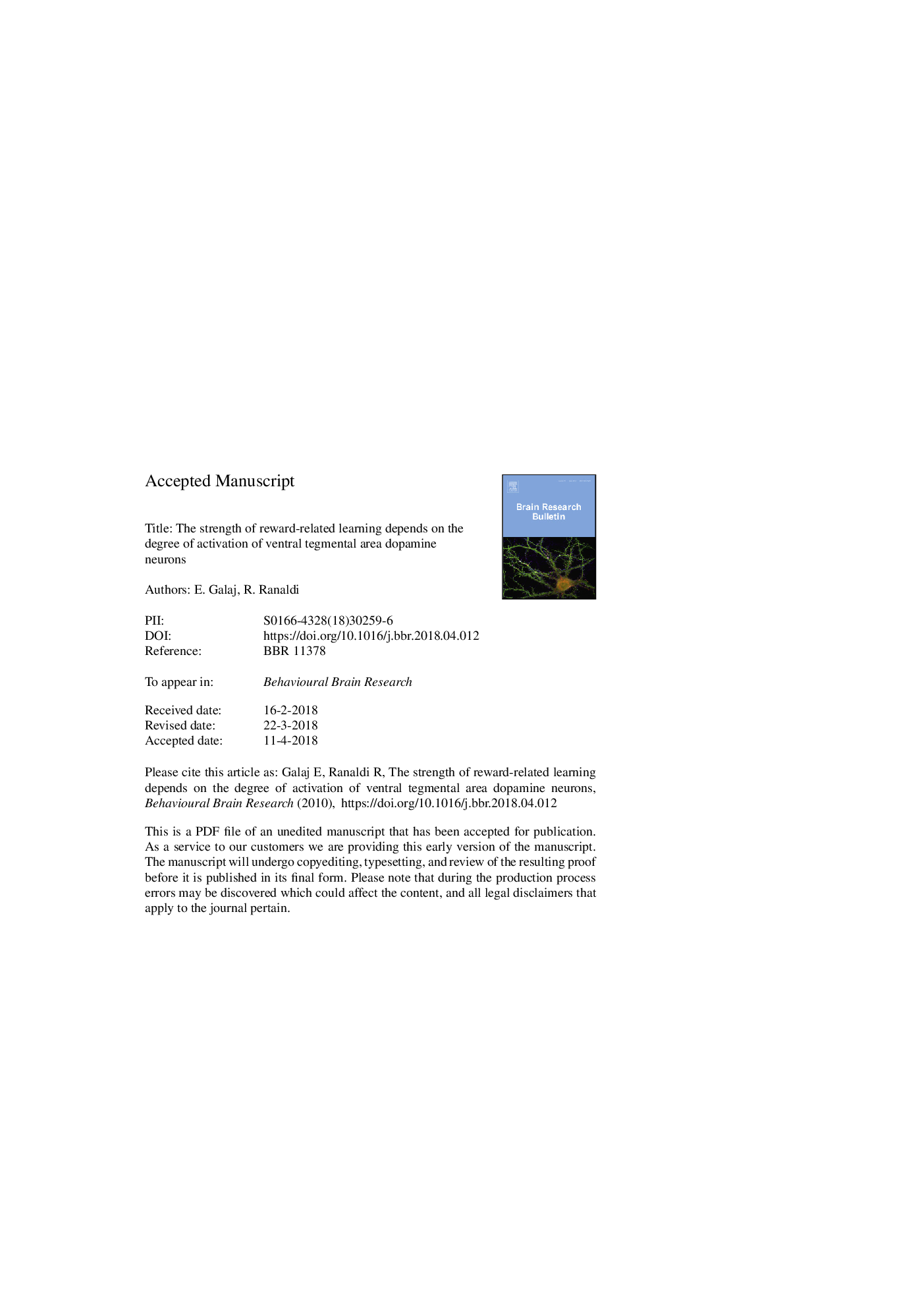| Article ID | Journal | Published Year | Pages | File Type |
|---|---|---|---|---|
| 8837741 | Behavioural Brain Research | 2018 | 41 Pages |
Abstract
We tested whether (1) the capacity of a reward-associated conditioned stimulus (CS) to cause conditioned activation of ventral tegmental area (VTA) dopamine (DA) neurons is associated with its capacity to elicit conditioned approach responses and (2) whether the acquisition of these capacities by a CS requires N-methyl-D-aspartate (NMDA) and muscarinic acetylcholine (mACh) receptor stimulation. Rats were trained to emit a conditioned approach response to a light CS that was previously paired with food and were treated systemically with scopolamine (a mACh receptor antagonist) or MK-801 (an NMDA receptor antagonist) either prior to each conditioning session (during which animals experienced paired CS and food presentations) or prior to the conditioned approach (CS-only) test. Brains were harvested after the CS-only test and processed for tyrosine hydroxylase (TH) (DA cells) and c-fos in the VTA. When animals received scopolamine or MK-801 treatment prior to conditioning sessions we observed significantly fewer TH-labeled (i.e., DA) cells in the VTA that expressed c-fos and significantly less conditioned approach responding during the CS-only test. Further analysis showed a correlation between the number of VTA DA cells activated and the number of conditioned approach responses. Treatments made prior to the CS-only test did not affect responding. Altogether these results suggest that the degree to which a CS elicits conditioned approach depends partially on the degree to which the CS activates VTA DA cells and that the acquisition of both of these capacities by a CS requires mACh and NMDA receptor stimulation.
Keywords
Related Topics
Life Sciences
Neuroscience
Behavioral Neuroscience
Authors
E. Galaj, R. Ranaldi,
